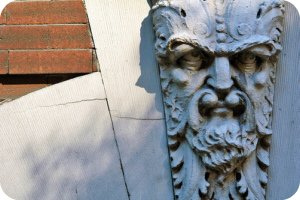Carino v. Muenzen, 2010 WL 3448071 (N.J.Super.A.D. August 30, 2010)

The courthouse in Morris County, New Jersey provides wi-fi access. As jury selection began in a medical malpractice case, the plaintiff’s lawyer used his laptop to do some real time research on the members of the jury pool. The judge noticed the research taking place and called the lawyer out. Here is the exchange between the lawyer and the judge:
THE COURT: Are you Googling these [potential jurors]?
[PLAINTIFF’S COUNSEL]: Your Honor, there’s no code law that says I’m not allowed to do that. I-any courtroom-
THE COURT: Is that what you’re doing?
[PLAINTIFF’S COUNSEL]: I’m getting information on jurors-we’ve done it all the time, everyone does it. It’s not unusual. It’s not. There’s no rule, no case or any suggestion in any case that says-
….THE COURT: No, no, here is the rule. The rule is it’s my courtroom and I control it.
The judge made the plaintiff’s lawyer close his laptop.
The trial proceeded and the jury found in favor of the defendant. Plaintiff sought review with the appellate court. On appeal, he argued that the court erred when it prohibited his attorney from accessing the internet during jury selection.
The appellate court found that although a trial judge is given wide discretion to control a trial in his or her courtroom, that authority is circumscribed by the responsibility to act reasonably. In this case, the appellate court found that prohibiting the web searches during voir dire was unreasonable:
There was no suggestion that counsel’s use of the computer was in any way disruptive. That he had the foresight to bring his laptop computer to court, and defense counsel did not, simply cannot serve as a basis for judicial intervention in the name of “fairness” or maintaining “a level playing field.” The “playing field” was, in fact, already “level” because internet access was open to both counsel, even if only one of them chose to utilize it.
Nevertheless, the court concluded that plaintiff did not demonstrate any prejudice resulting from the trial court’s ruling. He did not identify any juror who was unqualified or as to whom he claimed he would have exercised a peremptory challenge, even though he subsequently had the opportunity to perform an internet search concerning each juror.
The court went on to note that inasmuch as jury selection took two days, plaintiff’s counsel could have researched the prospective juror lists overnight or during breaks, and could have done so before the testimonial portion of the trial started on the third day.
Photo courtesy of croncast under this Creative Commons license.
